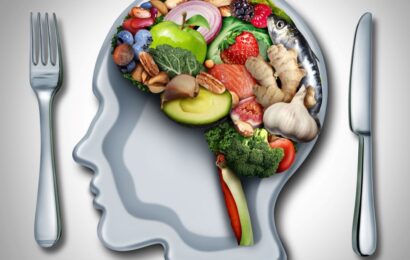Key Points:
- Mushroom coffee contains caffeine, which may be an issue for people who are sensitive or trying to reduce their intake.
- Those with mushroom allergies or sensitivities may experience side effects such as digestive discomfort or allergic reactions.
- Chaga mushrooms, commonly used in mushroom coffee, are high in oxalates, which may increase the risk of kidney stones in some individuals.
- Lion’s mane mushrooms may slow blood clotting and could be a concern for people with bleeding disorders or those on blood thinners.
- Lion’s mane may also lower blood sugar levels, so people with diabetes or those taking glucose-lowering medications should use caution.
- As with any supplement or functional food, it’s best to consult with a healthcare provider before adding mushroom coffee to your diet — especially if you have health conditions or take medication.
Have you heard of mushroom coffee? This trendy beverage has been gaining traction lately, thanks in part to its supposed health benefits. But what exactly is mushroom coffee — and should you trade in your morning brew for this earthy alternative?
What is mushroom coffee, anyway?
As the name suggests, mushroom coffee is exactly what it sounds like — coffee made with mushrooms. More specifically, it’s ground coffee blended with dried and ground mushrooms or mushroom extract. But not just any mushrooms make the cut. This brew features a special category known as adaptogenic mushrooms — natural substances that may help the body cope with stress, anxiety, and fatigue.
While mushroom coffee might sound like a passing social media trend, the idea behind it has ancient roots. Using medicinal plants and mushrooms is a key practice in Traditional Chinese and Ayurvedic medicine, where these ingredients have been used for centuries to support resilience and overall well-being.
There’s also a fascinating bit of history tied to mushroom coffee. During World War II, the Finnish people — known for being the world’s top coffee consumers — faced major shortages of coffee beans. In response, they turned to chaga, a mushroom native to their forests, as a substitute. Fast-forward to 2012, when Four Sigmatic, the first major post-war mushroom coffee brand, was born — bringing this tradition to modern mugs around the world.
What mushrooms are used to make mushroom coffee?
You might be picturing your everyday grocery-store mushrooms — like button or Portobello — being chopped up and added to your morning brew. And if so, you might be wondering… how would that even taste? Fortunately, that’s not how mushroom coffee works.
Instead, mushroom coffee is made with extracts from adaptogenic mushrooms — a special class of fungi believed to help the body adapt to stress. These extracts are blended with instant or ground coffee to create the final brew. Some versions use dried, ground mushrooms instead of extracts, but either way, don’t worry — there’s no chunky mushroom floating in your cup!
The mushrooms most commonly used in mushroom coffee include:
- Chaga: Native to Russia and Northern Europe, this mushroom is prized for its potential to support immunity and reduce inflammation.
- Reishi: A staple in traditional Asian medicine, reishi is thought to boost the immune system, lower cholesterol, and enhance stamina.
- Lion’s Mane: Traditionally used in Asia to support brain health, lion’s mane is being studied for its potential to aid memory and focus. Early research also suggests it may help protect nerve cells, but more studies are needed.
- Cordyceps: Often used in Traditional Chinese Medicine, cordyceps is believed to support energy, endurance, and immune function. Some sources also suggest it may benefit respiratory and kidney health, although human research is still limited.
- Maitake: Sometimes called “the dancing mushroom,” maitake is used to promote general wellness and may help with managing cholesterol and blood sugar levels.
What are the benefits of mushroom coffee?
Fans of mushroom coffee often tout a range of potential benefits, including:
- Reduced stress
- Improved immunity
- Better sleep
- Increased energy
- Sharper memory
Right now, though, there isn’t a lot of solid scientific evidence to back up these specific claims — especially when it comes to mushroom coffee itself. However, mushrooms do contain natural compounds that may support health in other ways.
For example, mushrooms are a source of B vitamins, potassium, selenium, copper, and zinc, along with a variety of antioxidants. When exposed to sunlight or UV light, certain mushrooms can also provide vitamin D — one of the few plant-based sources of this important nutrient.
Some research suggests that compounds found in mushrooms may help:
- Support immune function
- Lower cholesterol and blood pressure
- Promote a healthy gut microbiome
- Possibly reduce the risk of certain cancers (though more research is needed)
Another potential perk? Mushroom coffee usually contains less caffeine than regular coffee, which can be a plus if you’re sensitive to caffeine or looking to cut back. Some brands even offer a decaf version, making it easier to wean off your usual brew if you’re trying to scale down your caffeine intake.
Mushroom coffee nutrition
Not all mushroom coffees are created equal when it comes to calories and nutrition. Some brands contain zero calories, while others include added ingredients that contribute small amounts of fat, carbs, or protein.
For example:
Four Sigmatic Mushroom Coffee (one packet):
- 0 calories
- 0 grams of carbs
- 0 grams of protein
- 0 grams of fat
Ryze Mushroom Coffee (1 tablespoon):
- 15 calories
- 0.6 grams of carbs
- 0 grams of protein
- 1.4 gramsof fat
Om Mushroom Superfood Coffee Blend (1 tablespoon, includes coffee and oats):
- 20 calories
- 3 grams of carbs
- 1 gram of protein
- 1 gram of fat
As always, be sure to read the label on any mushroom coffee package to know exactly what you’re getting. And don’t forget — adding extras like milk, cream, or sweeteners will bump up the calorie and carb count, too.
Is mushroom coffee safe to drink?
Research on the safety of mushroom coffee is still limited, especially when it comes to long-term use. As mentioned earlier, caffeine may be a concern for some people, depending on the blend.
If you have an allergy or sensitivity to mushrooms, drinking mushroom coffee could lead to side effects such as digestive upset or allergic reactions.
Certain mushrooms used in these blends may also carry specific risks. For example:
- Chaga mushrooms are high in oxalates, compounds that can contribute to kidney stone formation in some people.
- Lion’s mane mushrooms may slow blood clotting, which could be an issue for individuals with bleeding disorders or those taking blood thinners. They may also lower blood sugar levels, so people with diabetes should use caution — especially if they’re on medications that affect blood glucose.
As with any supplement or functional food, it’s a good idea to check in with your healthcare provider before adding mushroom coffee to your routine — especially if you have existing health conditions or take medication.
Want to learn more about eating well with diabetes? Read “Strategies for Healthy Eating,” “Improving Your Recipes: One Step at a Time,” and “Easy Ways to Eat Better.”





